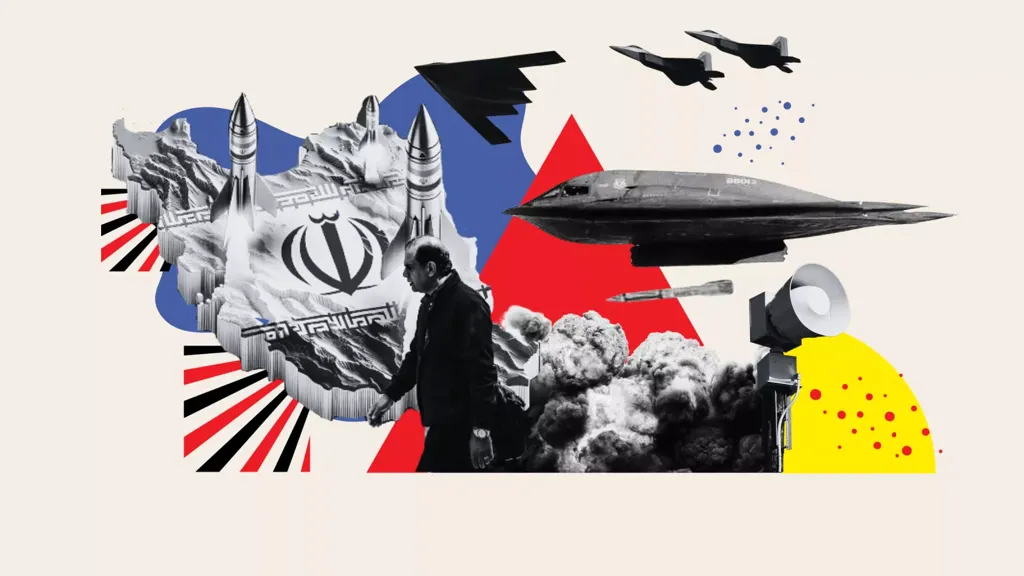The U.S. bombed three Iranian nuclear sites over the weekend, and on Monday night President Donald Trump announced a ceasefire with Iran.
Were the strikes a good idea? Should the United States seek regime change in Tehran? And what might the future hold for the Iranian government? Newsweek contributors Dan Perry and Daniel R. DePetris debate:
Dan Perry:
While the U.S. should generally avoid foreign wars and respect others' sovereignty, Iran's murderous dictatorship, a regional and global menace, meets the bar for exceptions. It backed militias that destabilized Lebanon, Iraq, Yemen, and Gaza; propped up Syria's Bashar Al-Assad; and nakedly threatened Israel while exporting terrorism as far as South America. Israel's limited ability to strike Iran's underground nuclear facilities made U.S. involvement necessary. The swift, targeted strike -- paired with a smart decoy delay and followed up by offers of talks while warning Iran against escalation -- was a surprisingly smart move.
Daniel R. DePetris:
President Trump's decision to bomb three Iranian nuclear sites suggests he believed military coercion would compel Iranian Supreme Leader Ayatollah Ali Khamenei to return to the negotiating table. Iran's decision to cease fire would appear to be a vindication of that approach. In reality, nuclear talks will only produce a new deal if Trump leaves maximalism at the door. To date, Trump isn't demanding a nuclear deal with Iran, but total Iranian capitulation -- give me what I want or face more military force. Nothing in the history of the 46-year old Islamic Republic would suggest this was the right approach. It only risked escalation, which would have been disastrous.
Perry:
I actually back President Trump's ultimatums. If this approach never worked in 46 years of Iranian lunacy, that's because it was also never tried. Attrition, which Iran seeks, is worse than escalation: It risks catastrophe at every turn. Trump should stick to his demands to limit enrichment and, with a ceasefire now in place, hope for a palace coup.
DePetris:
Except it was tried before. Trump's approach toward Iran today is remarkably similar to his approach in 2018, when he withdrew from the imperfect but effective JCPOA, imposed higher sanctions on the Iranian economy, and offered to lift them if Tehran signed a new deal. We know how that went: the Iranians didn't take the bait and responded by escalating their nuclear program, leading to the current mess.
Perry:
I don't view Trump's idiotic cancellation of the JCPOA as an effective ultimatum. The regime can weather sanctions -- it doesn't care much about its people -- and Trump had no plan for the (foreseeable) return to serious enrichment. Given the humiliation Israel has already imposed, and the threat of regime-toppling force, Tehran may dial back its antagonism. Or it might lash out. But you cannot run away from every fight.
DePetris:
I'm glad we agree on Trump's cancellation of the JCPOA! But here's where I differ: there are necessary fights and unnecessary fights. Trump's fight was the latter. Yes, the Iranian regime doesn't care about the population. Its first priority is its own survival. However, we must ask whether threatening regime change actually brings Iranians to the table -- or merely solidifies the belief that acquiring a nuclear weapon is the only way to ensure power.
Perry:
I don't think "coming to the table" is the issue; Iran drags talks out indefinitely as part of its strategy. It's a bully that has badly overreached. The regime, if it's smart, will conclude that nuclear belligerence -- and its interference in the region -- is what begets the outside hostility that endangers its survival. Nuclear weapons can deter another outside attack, but not a revolution or a palace coup (the more likely scenario).
DePetris:
I don't see a "palace coup" or popular uprising as particularly likely. We tend to underestimate such regimes' capacity to maintain power amidst internal and external challenges -- and let's face it, there's no organized political opposition inside Iran that meaningfully threatens Khamenei and the mullahs. That doesn't mean it won't eventually happen, only that it's hardly a realistic prospect today.
Perry:
In the short term, you're probably right -- but in a longer timeframe, almost certainly not. Despotisms seem invincible until they suddenly collapse, and then everyone's surprised. The Islamic Republic is widely seen as an Arab implant in Persia, and will eventually fall. In the meantime, however, it must be brought to heel on its nuclear ambitions, missiles, and regional proxy militias. Western reasonableness shouldn't mutate into indifferent isolationism. Any action the U.S. takes should be clear, swift, and decisive -- and always framed as targeting the regime, not the people. The excellent people of Iran are our friends. One day they will be free.
DePetris:
In crisis situations, U.S. leaders need to keep cool heads, understand their adversary's motivations, and restrain impulsive behavior. Trump's decision to strike Iran's nuclear facilities was impulsive because it wasn't needed -- Iran posed no "imminent threat" that warranted a preventative use of U.S. military force. The notion Tehran was sprinting toward a nuclear bomb is an empty talking point. Israel is certainly under Iranian threat, but has demonstrated over the past 20 months that it's fully capable of taking the action it believes necessary for its own security. Regime change in Tehran might be an unstated goal for the Israelis, but it shouldn't be for the United States.
